- Hartnell College provides the leadership and resources to ensure that all students shall have equal access to a quality education and the opportunity to pursue and achieve their goals. We are responsive to the learning needs of our community and dedicated to a diverse educational and cultural campus environment that prepares our students for productive participation in a changing world.
School Highlights
Hartnell College serves 11,487 students (30% of students are full-time).
The college's student:teacher ratio of 28:1 is lower than the state community college average of 32:1.
Minority enrollment is 89% of the student body (majority Hispanic), which is more than the state average of 77%.
Quick Stats (2025)
- Enrollment: 11,487 students
- In-state tuition: $1,420
- Out-state tuition: $7,060
- Student:teacher ratio: 28:1
- Minority enrollment: 89%
- Source: Integrated Postsecondary Education Data System (IPEDS)
School Overview
The teacher population of 407 teachers has stayed relatively flat over five years.
Hartnell College
(CA) Community College Avg.
Carnegie Classification
Associate's Colleges: High Transfer-High Traditional
Baccalaureate/Associate's Colleges: Associate's Dominant
Institution Level
At least 2 but less than 4 years
At least 2 but less than 4 years
Institution Control
Public
Public
Total Faculty
407 staff
294 staff
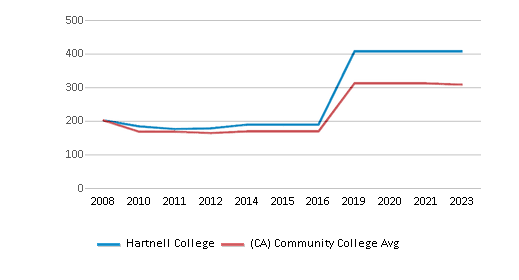
School Calendar
Student Body
The student population of Hartnell College has declined by 11% over five years.
The student:teacher ratio of 28:1 has increased from 21:1 over five years.
The Hartnell College diversity score of 0.44 is less than the state average of 0.70. The school's diversity has declined by 16% over five years.
Total Enrollment
11,487 students
2,311 students
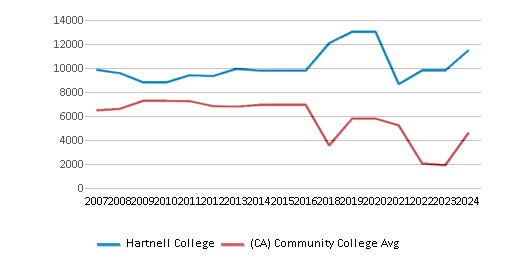
Student : Teacher Ratio
28:1
32:1
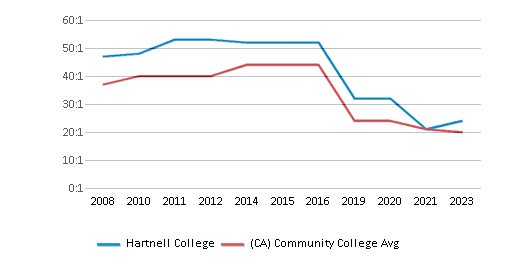
# Full-Time Students
3,432 students
1,232 students
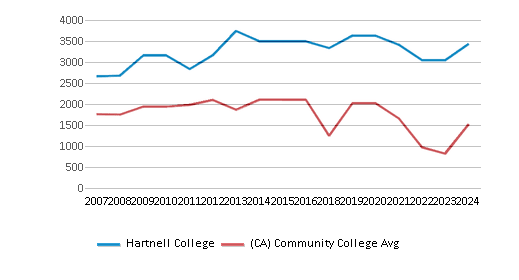
# Part-Time Students
8,055 students
8,299 students
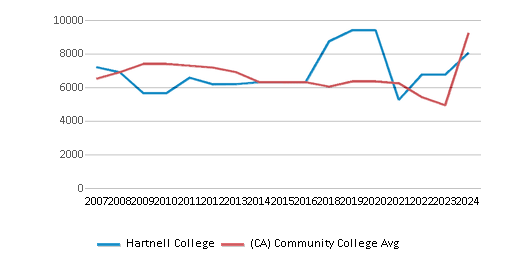
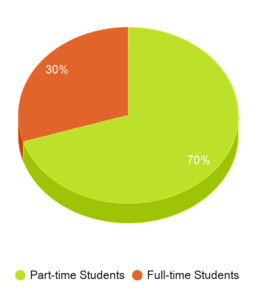
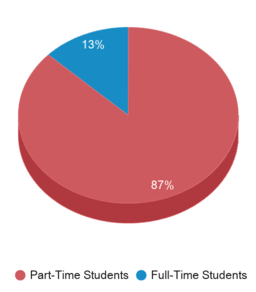
# Enrollment Undergraduate
114 students
240 students
# Full-Time Undergraduate Students
3,432 students
1,155 students
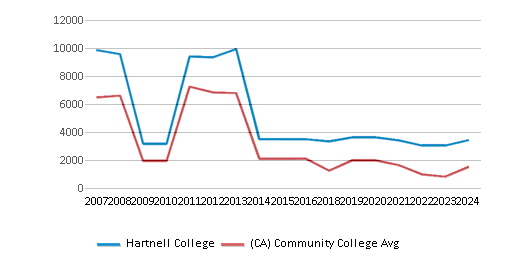
# Full-Time Graduate Students
n/a
63 students
# Part-Time Undergraduate Students
8,055 students
8,457 students
# Part-Time Graduate Students
n/a
10 students
Total Dormitory Capacity
n/a
140 students
% American Indian/Alaskan
n/a
n/a
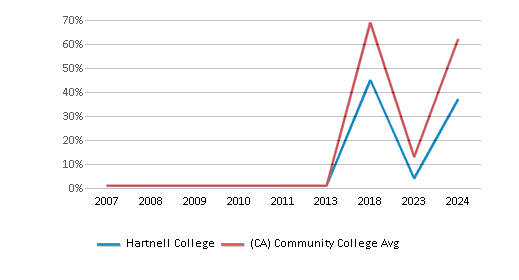
% Asian
4%
13%
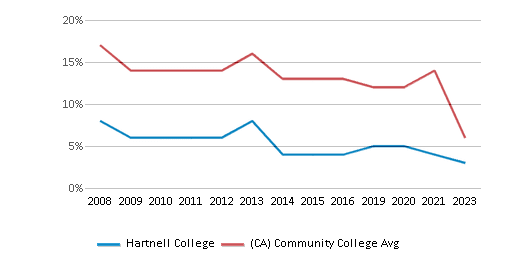
% Hispanic
74%
47%
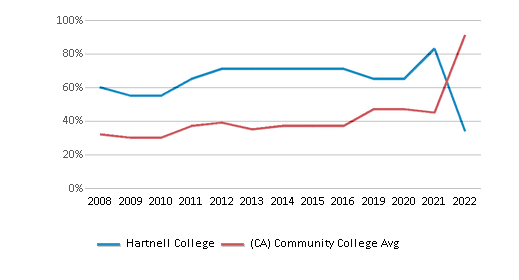
% Black
2%
7%
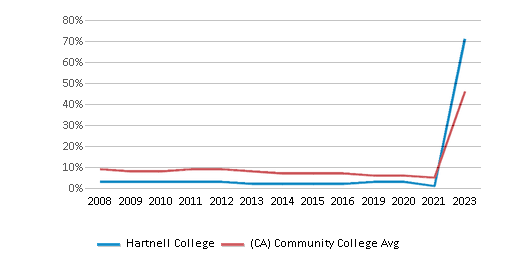
% White
11%
23%
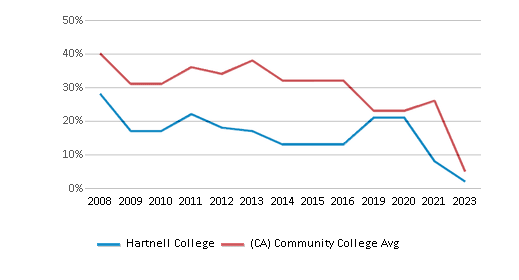
% Hawaiian
n/a
1%
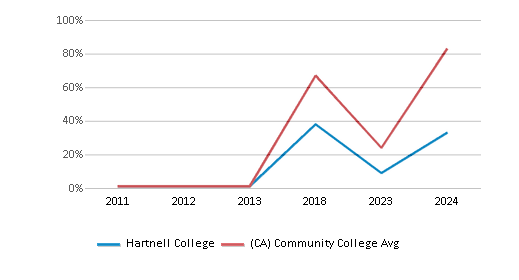
% Two or more races
2%
5%
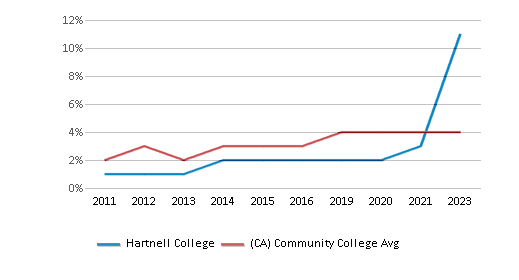
% Non Resident races
n/a
1%
% Unknown races
6%
3%
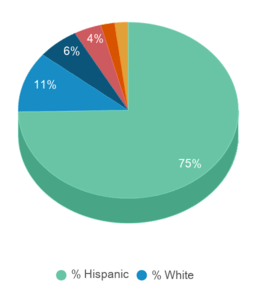
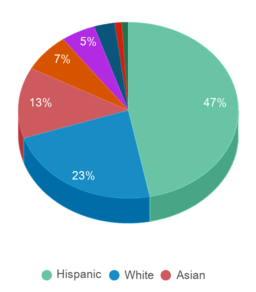
Diversity Score
0.44
0.70
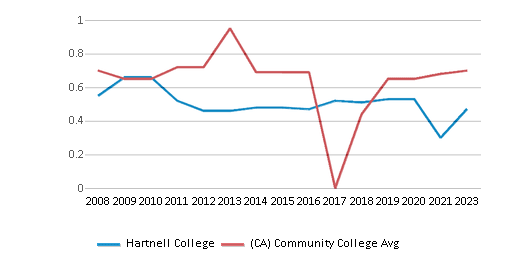
College Completion Rate (Students who graduate in less than 4 years)
0.319%
0.4221%
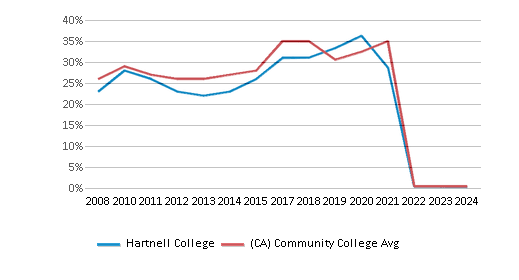
College Completion Rate (Students who graduate in 4 years or more than 4 years)
n/a
0.4304%
Average Graduate Earnings (10 Years)
$34,600
$34,700
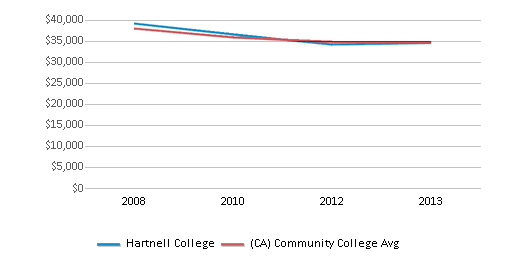
Tuition and Acceptance Rate
The public in-state tuition of $1,420 is more than the state average of $1,236. The in-state tuition has stayed relatively flat over four years.
The public out-state tuition of $7,060 is more than the state average of $6,547. The out-state tuition has declined by 21% over four years.
In-State Tuition Fees
$1,420
$1,236
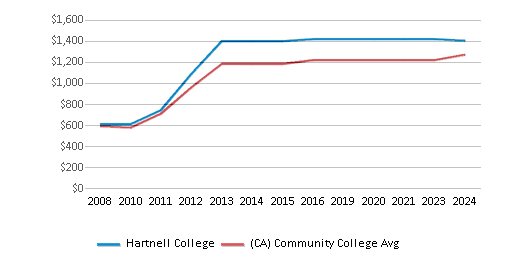
Out-State Tuition Fees
$7,060
$6,547
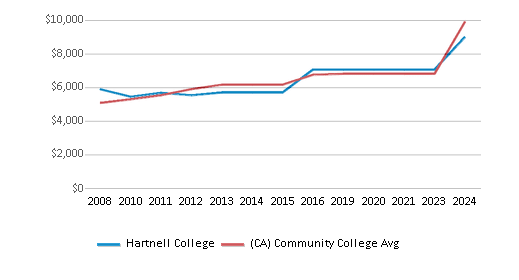
% Students Receiving Some Financial Aid
89%
85%
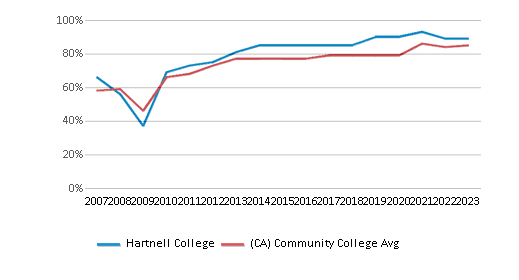
Median Debt for Graduates (Year 2014)
$4,500
$9,500
Median Debt for Dropouts
$4,500
$5,500
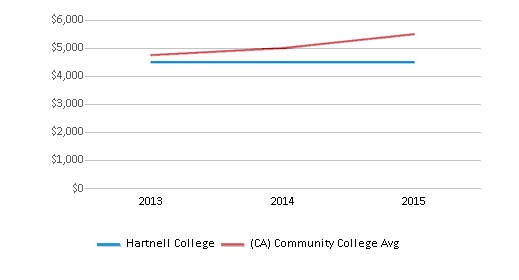
Acceptance Rate
n/a
92%
Source: 2024 (or latest year available) Integrated Postsecondary Education Data System (IPEDS)
School Notes
- Hartnell College is one of the oldest educational institutions in California. In 1920, Salinas Junior College was founded. The school was renamed Hartnell College in 1948. The Hartnell Community College District was formed in 1949. The college moved to its present location at 156 Homestead Avenue in Salinas in 1936. The college is located in Monterey County just 20 minutes drive from the scenic Monterey Coast. Hartnell College serves the Salinas Valley, a fertile agricultural region some 10 miles wide and 100 miles long. The College draws its students from Salinas and the surrounding communities of Bradley, Castroville, Chualar, Greenfield, Jolon, King City, Lockwood, Moss Landing, San Ardo, San Lucas, Soledad and adjacent rural areas. Hartnell serves approximately 9,316 students with an ethnic profile that includes 52% Latino, 33% White, 5% Asian, 5% Filipino, 3% Black, 1% Native American students and 1% Other minorities. The College offers the first and second year of a college program and awards the associate of arts/sciences degrees and certificates of proficiency. The college also provides vocational training, Work Force and Community Development classes, Contract Education and numerous cultural and recreational activities. The computer center is available to students for class and assignment use and provides access to the Internet and the World Wide Web. The College has transfer agreements with many California State University (CSU) and University of California (UC) campuses which guarantee admission for Hartnell students who have completed the two year requirements. The college offers a full complement of services to assist students' educational progress including Telephone Registration, Academic and Personal Counseling, Financial Aid Services, International Student Services, Re-Entry Services, Sports Counseling, Disabled Students Programs and Services, Assessment, Career and Transfer Assistance and more. In addition, students are encouraged to become involved in the many clubs on campus and student government through the Associated Students of Hartnell College.
Frequently Asked Questions
How much does Hartnell College cost?
Hartnell College's tuition is approximately $1,420 for In-State students and $7,060 for Out-State students.
What schools are Hartnell College often compared to?
Hartnell Collegeis often viewed alongside schools like Monterey Peninsula College by visitors of our site.
Recent Articles

Obtaining Your Bachelor's Degree at a Community College
Explore the evolving landscape of community colleges offering bachelor's degrees, addressing affordability, accessibility, and workforce needs.

A to Z of Community College Certificates and Courses
From business and healthcare to technology and skilled trades, the article showcases the breadth of options available to students seeking to enhance their knowledge, develop new skills, or pursue career advancement.

What is a Community College?
This comprehensive guide explains what a community college is, its history, and its role in higher education. It covers the types of programs offered, differences from four-year colleges, benefits of attending, and important considerations for prospective students, providing valuable insights for those exploring educational options.









